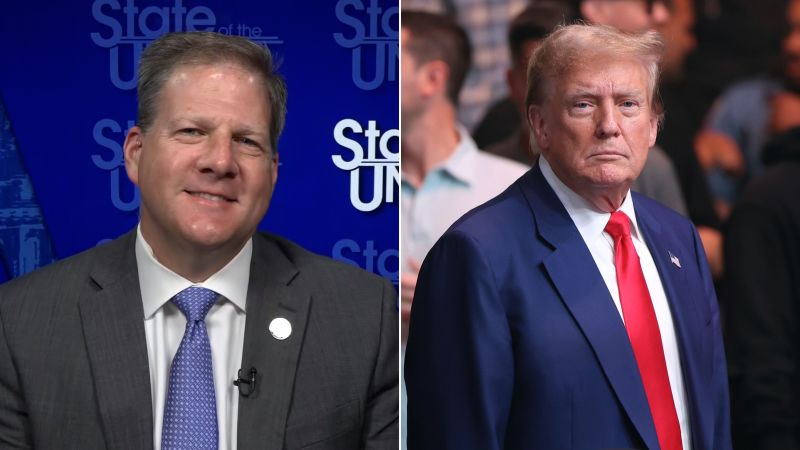In a recent interview with CNN, New Hampshire Governor Chris Sununu discussed his stance on potentially voting for former President Donald Trump in the 2024 presidential election, even after Trump’s felony conviction. Sununu’s response to this question was simply, “Oh sure.” This response has sparked controversy and debate among political analysts, journalists, and citizens alike. The Director of the Syracuse University Institute for Democracy, Journalism and Citizenship, Margaret Talev, has offered her perspective on Sununu’s statement and its implications.
Sununu’s willingness to support Trump despite his felony conviction raises questions about his moral and ethical values, as well as his allegiance to the Republican party. Some critics argue that by continuing to support Trump, Sununu is condoning the former president’s illegal actions and setting a dangerous precedent for future political leaders. Others believe that Sununu’s decision is indicative of the deep divide within the Republican party and the ongoing struggle for leadership and unity.
Talev’s reaction to Sununu’s statement highlights the importance of democratic values and the role of journalism in holding political leaders accountable. As the director of an institute focused on democracy, journalism, and citizenship, Talev emphasizes the need for transparency and integrity in political decision-making. She suggests that Sununu’s willingness to vote for Trump may reflect a broader trend of Trump’s ongoing influence within the Republican party and the challenges faced by those seeking to uphold democratic principles.
The discussion surrounding Sununu’s stance on voting for Trump also sheds light on the complexities of political loyalty and personal beliefs. Some argue that loyalty to a political party should not outweigh one’s commitment to upholding the law and democratic norms. Others believe that Sununu’s decision is a strategic move to maintain support within the Republican party and secure his own political future. Ultimately, Sununu’s choice to support Trump will likely continue to be a topic of debate and scrutiny as the 2024 election approaches.
In the current political landscape, the issue of accountability and leadership has become increasingly important. Sununu’s willingness to support Trump, despite his felony conviction, raises questions about the standards and values that should guide political decision-making. As political analysts and journalists continue to analyze and debate this issue, the importance of upholding democratic principles and ethical leadership remains at the forefront of public discourse. Sununu’s stance on voting for Trump serves as a reminder of the ongoing challenges and responsibilities faced by political leaders in a divided and uncertain political climate.
Overall, the reaction to Governor Sununu’s comments on voting for Trump after a felony conviction highlights the complexities and controversies surrounding political loyalty, accountability, and democratic values. Margaret Talev’s perspective on this issue underscores the importance of ethical leadership and transparency in political decision-making. As the debate continues, the role of journalism and civic engagement in holding leaders accountable and upholding democratic norms will be crucial in shaping the future of American democracy.


